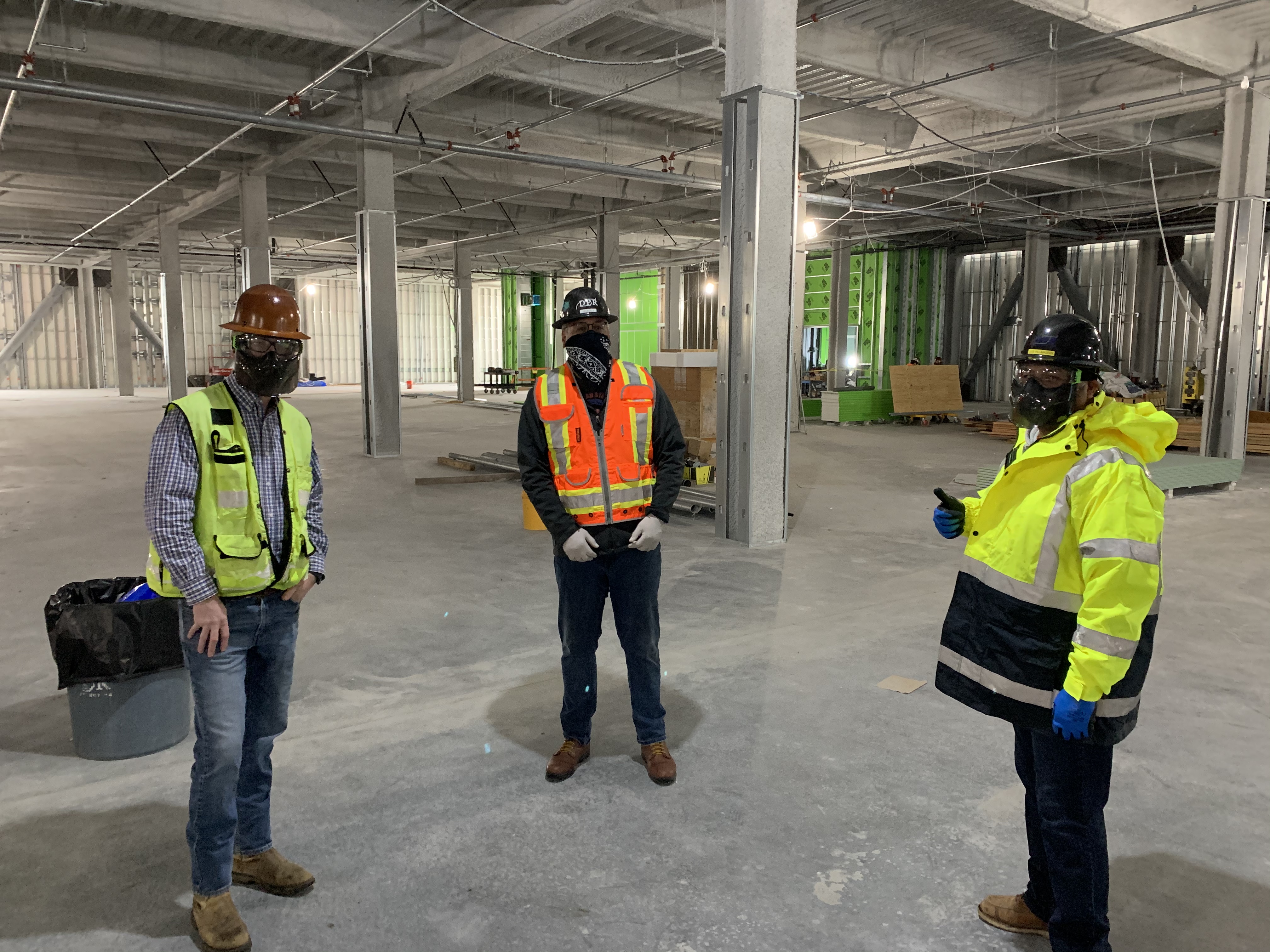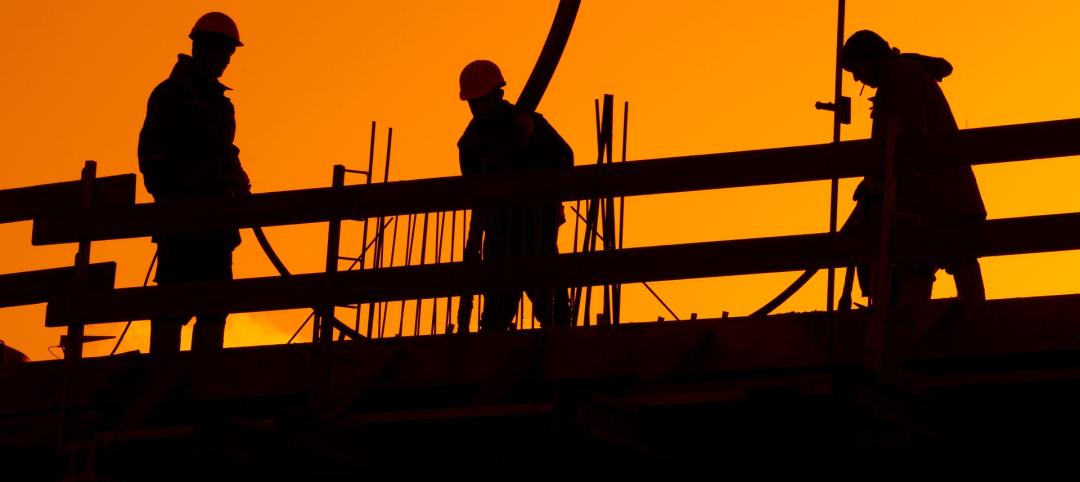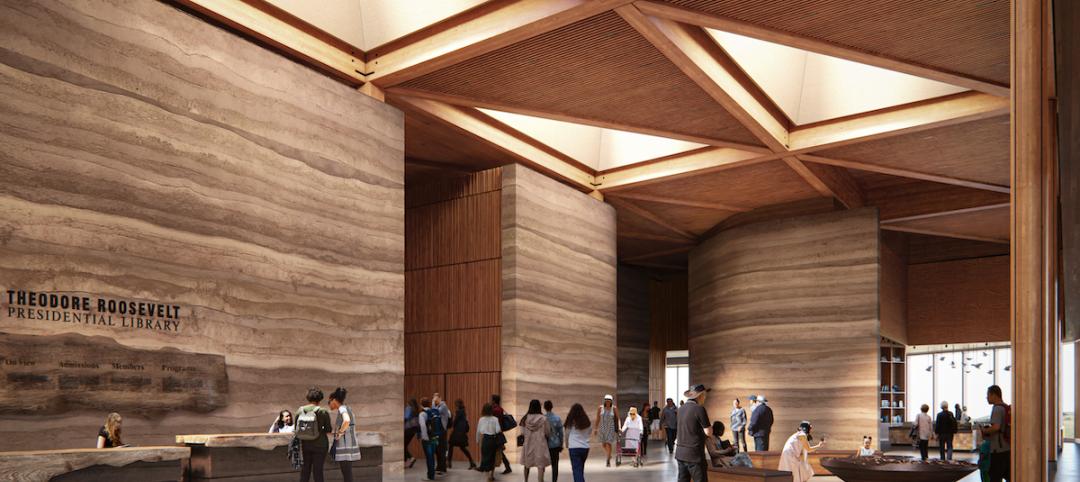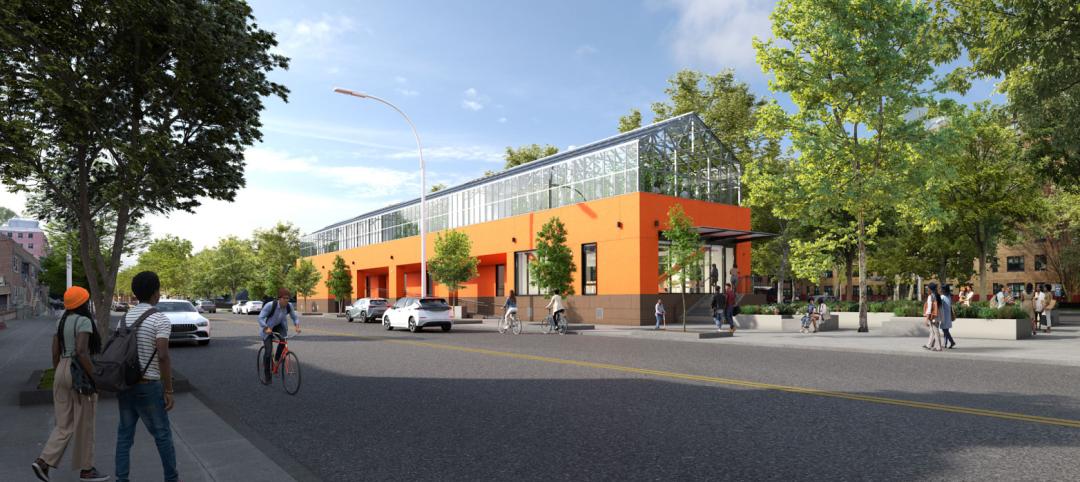While the COVID-19 pandemic has forced shutdowns of many global businesses, a coalition of leading critical infrastructure and construction companies has banded together to launch the “NEXT Coalition” to promote and share industry safety best practices.
Black & Veatch, DPR Construction, Haskell and McCarthy Building Companies are leveraging their deep safety expertise and best practices in a campaign to ensure the well-being of crews and office team members facing complex challenges posed by the coronavirus outbreak.
The coalition seeks to identify and advance processes and technologies most likely to bolster construction safety in response to the “next normal” ushered in by COVID-19. To that end, the coalition of leading construction and design companies is launching the “Construction Safety Challenge,” an open call to companies, startups and other innovators with emerging safety solutions that can be quickly deployed and scaled.
“This virus, and future pandemics won’t wait for us to catch up,” said Steve Edwards, CEO of Black & Veatch. “The NEXT Coalition recognizes the opportunities that our companies’ collective scale and experience create to quickly begin sourcing, testing and launching solutions that can impact construction safety fast. To accomplish that goal, we needed to look outside of our own companies. Hence, the need for the open Challenge.”
The NEXT Coalition seeks both new startups and seasoned companies to partner with its members to implement products and processes that will enhance health and safety in the field and back office. Submissions must be as close to market-ready as possible, though proof-of-concept/prototype-stage solutions will be considered. Solutions that are chosen may be deployed by coalition members on active projects around the globe.
“The need for rapid innovation and implementation in our industry has never been greater,” McCarthy Southern California Region President Michael Myers said. “This coalition has joined together to source the best solutions to ensure the safety and sustainability of all of our projects. As we continue to deliver critical infrastructure across the country, our companies have the reach and the resources to move the needle on an industry-wide basis.”
The Construction Safety Challenge seeks solutions in areas that include safety policy compliance, screening, tracking and tracing, real-time communication, incident tracking, data analytics and others. Technologies of solutions may include screening, mobile apps, disinfection, wearables, contact tracing, personal protection equipment (PPE) and more.
"Keeping workers safe can best be accomplished through collaboration," said Michelle Gray, one of DPR’s safety leaders. "As we face the pandemic, the world has again shown that safety can be open-source. Providing a safe workplace is a duty of all employers, and the NEXT Coalition is excited about contributing to open-source safety to protect people and keep jobs open.”
Such considerations are paramount in the construction sector where work cannot be done remotely and social distancing can be challenging. This makes developing solutions to minimize or quickly mitigate the onsite transmission of COVID-19 and future pandemics essential.
“The peer companies in the Next Coalition are combining distinguished cultures of safety, operational excellence and innovation to accelerate impactful change within our industry, and beyond,” said Jim O’Leary, President and CEO of Haskell. “The abrupt and global impact of COVID-19 reinforces and amplifies these cultural expectations.”
The Construction Safety Challenge is facilitated by Brightidea, the leading innovation management platform that accelerates the success of modern approaches by harnessing the creative potential of organizations. Developed ideas are submitted through a web portal, a mobile app or by email, then reviewed by subject-matter experts at each company.
“The Construction Safety Challenge is another example of organizations turning to crowdsourcing as the best way to generate reliable and vetted solutions for mitigating the impact of this pandemic,” said Matt Greeley, Brightidea’s CEO. “The solutions that come out of the Safety Challenge will surely be applicable to other industries as they start to grapple with what the `next normal’ looks like.”
Related Stories
Codes and Standards | Jun 17, 2024
Federal government releases national definition of a zero emissions building
The U.S. Department of Energy has released a new national definition of a zero emissions building. The definition is intended to provide industry guidance to support new and existing commercial and residential buildings to move towards zero emissions across the entire building sector, DOE says.
Multifamily Housing | Jun 14, 2024
AEC inspections are the key to financially viable office to residential adaptive reuse projects
About a year ago our industry was abuzz with an idea that seemed like a one-shot miracle cure for both the shockingly high rate of office vacancies and the worsening housing shortage. The seemingly simple idea of converting empty office buildings to multifamily residential seemed like an easy and elegant solution. However, in the intervening months we’ve seen only a handful of these conversions, despite near universal enthusiasm for the concept.
Healthcare Facilities | Jun 13, 2024
Top 10 trends in the hospital facilities market
BD+C evaluated more than a dozen of the nation's most prominent hospital construction projects to identify trends that are driving hospital design and construction in the $67 billion healthcare sector. Here’s what we found.
Affordable Housing | Jun 12, 2024
Studio Libeskind designs 190 affordable housing apartments for seniors
In Brooklyn, New York, the recently opened Atrium at Sumner offers 132,418 sf of affordable housing for seniors. The $132 million project includes 190 apartments—132 of them available to senior households earning below or at 50% of the area median income and 57 units available to formerly homeless seniors.
Contractors | Jun 12, 2024
New hire strengthens Kraus Anderson's relationships with design-architects
Nate Enger, the firm’s second design phase services manager, has worked on both sides of the designer-contractor fence.
Contractors | Jun 12, 2024
The average U.S. contractor has 8.3 months worth of construction work in the pipeline, as of May 2024
Associated Builders and Contractors reported that its Construction Backlog Indicator fell to 8.3 months in May, according to an ABC member survey conducted May 20 to June 4. The reading is down 0.6 months from May 2023.
Lighting | Jun 10, 2024
LEDs were nearly half of the installed base of lighting products in the U.S. in 2020
Federal government research shows a huge leap in the penetration of LEDs in the lighting market from 2010 to 2020. In 2010 and 2015, LED installations represented 1% and 8% of overall lighting inventory, respectively.
Contractors | Jun 7, 2024
First-in-nation law requires contractors to pay prevailing wage for subsidized housing projects in Minnesota
Minnesota recently adopted a first-in-nation law that requires contractors to pay prevailing wage for subsidized housing projects in the state. This action makes Minnesota the first state in the nation to mandate prevailing wages on projects funded by federal Low-Income Housing Tax Credits (LIHTC).
Libraries | Jun 7, 2024
7 ways to change 'business as usual': The Theodore Roosevelt Presidential Library
One hundred forty years ago, Theodore Roosevelt had a vision that is being realized today. The Theodore Roosevelt Presidential Library is a cutting-edge example of what’s possible when all seven ambitions are pursued to the fullest from the beginning and integrated into the design at every phase and scale.
Education Facilities | Jun 6, 2024
Studio Gang designs agricultural education center for the New York City Housing Authority
Earlier this month, the City of New York broke ground on the new $18.2 million Marlboro Agricultural Education Center (MAEC) at the New York City Housing Authority’s Marlboro Houses in Brooklyn. In line with the mission of its nonprofit operator, The Campaign Against Hunger, MAEC aims to strengthen food autonomy and security in underserved neighborhoods. MAEC will provide Marlboro Houses with diverse, community-oriented programs.

















